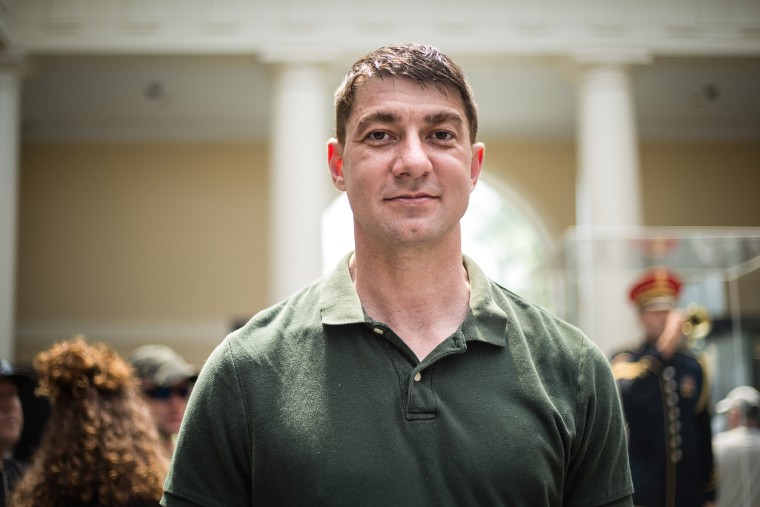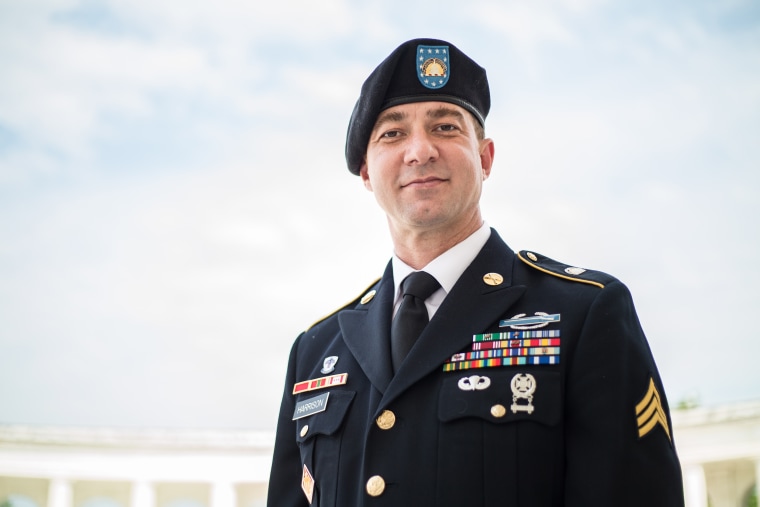In a landmark ruling, a federal court has ordered the Defense Department to end a long-standing Pentagon policy forbidding enlisted military service members from deploying in active duty outside the continental U.S. and being commissioned as officers if they have HIV.
Supporters hailed it as overdue legal affirmation that people receiving effective antiretroviral treatment for HIV are essentially healthy and pose no risk to others.
The judgment topples one of the country's last major pillars of HIV-related employment discrimination. Federal law has for decades barred employers from discriminating against people with HIV under the Americans with Disabilities Act of 1990. The military has stood alone as the sole U.S. employer maintaining such explicit discriminatory practices.
“This is one of the biggest rulings for people living with HIV and enshrining their protections under the Constitution in decades,” said Kara Ingelhart, a senior attorney at Lambda Legal, which along with a team of private-practice attorneys litigated the cases.

The Pentagon still bans people with HIV from enlisting in the military or from being commissioned out of military academies. The new ruling, which could affect those other prohibitions, concerns service members who are diagnosed after they enter the military.
U.S. District Judge Leonie Brinkema of Eastern Virginia ruled Wednesday in the two cases, Harrison v. Austin and Roe & Woe v. Austin, in which a trio of men sued the military for HIV-related discrimination. The Air Force tried to discharge two pseudonymous plaintiffs, while the D.C. Army National Guard denied Sgt. Nick Harrison a commission in the Judge Advocate General’s Corps, or JAG Corps, because they had HIV.
Brinkema ruled that the Pentagon’s policy qualifying HIV as a chronic condition requiring a waiver was scientifically outdated and that it unfairly treated people with the virus differently from other service members living with chronic health conditions requiring routine medication.
“This is the first decision securing the rights of people living with HIV that is rooted in the equal protection clause of the Constitution,” said Scott Schoettes, a former Lambda attorney in private practice in Chicago, who is co-counsel in the two cases.
Brinkema, who was appointed by President Bill Clinton in 1993, has ordered the Air Force to rescind the discharges of the two airmen. She further ordered the Army to rescind and reconsider its denial of Harrison’s JAG Corps application.
Under the ruling, the Pentagon can no longer use the virus as a reason to discriminate against asymptomatic HIV-positive service members whose viral loads are undetectable thanks to antiretroviral treatment. In particular, the Pentagon may not separate, discharge or deny applications for deployment from such people.
The Justice Department could appeal the ruling to the 4th U.S. Circuit Court of Appeals. In January 2020, the court upheld a preliminary injunction in the case of the two airmen, blocking the Air Force from discharging them while their case was litigated.
President Joe Biden’s 2020 campaign platform included a measure supporting the right of people with HIV to serve fully in the military. Ingelhart expressed hope that the administration will compel the Pentagon to reverse the remaining policies that discriminate based on HIV status.
The Defense Department is the world’s largest employer, with 3 million service members worldwide.
The Pentagon referred questions to the Justice Department, which declined to comment.
In defending the two cases, the military argued that service members with HIV pose a theoretical risk to others, such as on the battlefield.
After the Pentagon appealed the injunction to the 4th Circuit in 2019, a group of former military leaders filed an amicus brief supporting the plaintiffs. The brief criticized as scientifically outdated the Pentagon’s policy qualifying HIV as a chronic condition requiring a waiver and argued that the policy compromised military readiness.
Effective antiretroviral treatment for HIV has been on the market since 1996. Today, HIV is typically treated with a once-a-day pill.
Scientists have known for decades that HIV cannot be transmitted through casual contact. Extensive research led the global HIV scientific community to conclude in the late 2010s that people with undetectable viral loads thanks to HIV treatment cannot transmit the virus through sex.
According to Lambda Legal, nearly all of the approximately 2,000 members of the U.S. military living with HIV have undetectable viral loads.
Today, people treated for HIV have near-normal life expectancies.
“The military is being forced to acknowledge the current science regarding HIV: It is easily treatable; there are zero documented cases of transmission in combat; and, most importantly, it is never a reason for discrimination,” said Sarah Warbelow, the legal director of the Human Rights Campaign, who was not involved with the litigation.
Harrison, 45, an Oklahoma native who joined the military in 2000, was diagnosed with HIV in 2012 after he returned from a tour of duty in Kuwait. In May 2018, he sued the Army and the Defense Department for denying his application to become a military lawyer with the JAG Corps.
“It’s nice to see the court make a decision placing science over stigma,” Harrison said of the judge’s ruling.
In December 2018, Harrison’s legal team further sued the Air Force and the Justice Department on behalf of two airmen who received notifications discharging them from service because their HIV statuses prevented their potential deployment to the Middle East.
The policy, codified in a February 2018 memorandum and dubbed “Deploy or Get Out,” outraged the HIV community by forcing some HIV-positive service members out of the military, not previously a common practice, if they faced potential deployment.
Harrison said he keeps in touch with the two other plaintiffs, as well as a collection of fellow HIV-positive members of the military. “We’re looking forward to the opportunity to go forward with our lives and to continue to serve the military in the best way possible,” he said.
His lawyers have also sued the Navy and the Air Force on behalf of a pair of cadets who were blocked from commissioning in the military after their military academy graduations because they had HIV. The case, Deese and Doe v. Austin, which is pending in U.S. District Court for Maryland, is in the discovery phase after the court denied the Pentagon’s request for dismissal.

